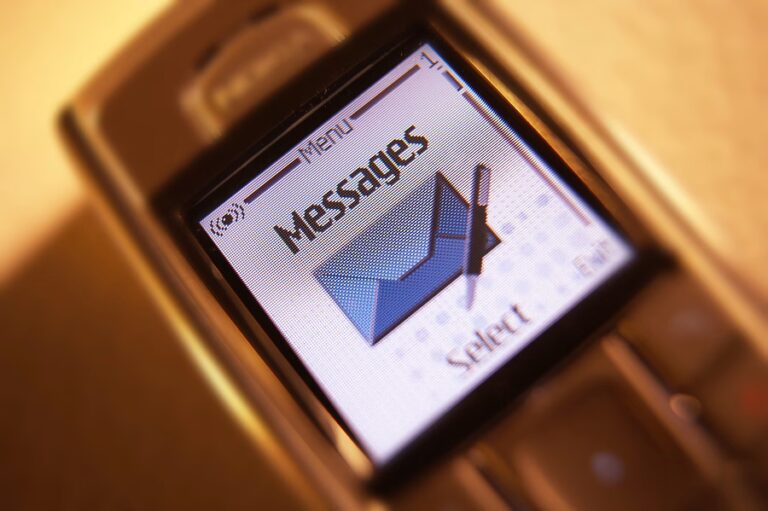UK: 03330 156 651 | IE: 01263 5299
-
UK: 03330 156 651
-
IE: 01263 5299
Why Does A Business Mobile Phone Pioneer No Longer Exist?
Nokia was arguably the most pioneering company when it came to business mobile solutions, but no longer occupies that space. What happened to cause such...
Stephen
Digital Marketing Manager
- Published Date:

Table of Contents
There are typically two options when it comes to business mobile solutions, each of which provides a broad but largely incompatible ecosystem of devices and networking infrastructure.
There used to be a lot more options in the market sector, each of which offered a distinctly special offering. There were the simple, effective handsets offered by Motorola, the complex miniature office environment provided by BlackBerry and many different models in between the two extremes.
However, the most pioneering and successful company in both the business and personal mobile phone market was Nokia, which dominated the entire landscape for a decade thanks to handsets such as the 9000 Communicator and the extremely popular 3310.
Whilst the Nokia Corporation still exists, and you can still buy branded Nokia phones produced by Human Mobile Devices, the original mobile arm no longer exists as the result of a truly spectacular collapse.
The causes of it were not just the result of a clear shifting tide in smartphones but a cavalcade of terrible decisions that undid in a few short years what had taken decades to build.
Burning The Platform
In the late 1990s and early 2000s, Nokia saw that the future of mobile devices was in developing a relatively uniform platform that any of their phones could use, which would eventually take the form of Symbian.
This led to a decade of dominance in the mobile space, with Nokia’s share of the mobile phone market peaking at 36.6 per cent in 2008.
This was in spite of a few missteps by the company that caused a concerning drop in 2004, including the infamous N-Gage, an attempt to turn their mobile platform into a handheld games console that hurt the company’s reputation.
However, the issue was their response to the biggest change in technology ever seen in the sector.
When Steve Jobs introduced the iPhone, he specifically criticised the Nokia E62 alongside other similar business mobile phones for wasting space with a full physical keyboard, offering the touchscreen as an alternative.
Whilst history would suggest that this was the end for everything that was not Apple or Android, this was far from the case. Nokia even had a plan for a touch-screen competitor using its own Symbian platform.
However, the launch of the Nokia N8 was a disaster, delayed for months, which was the final straw for investors, who pushed for a new approach.
The answer seemed to be Stephen Elop, a former Microsoft executive, who planned for a complete change to the company’s business mobile strategy.
The result is the now-infamous “Burning Platform” memo, a leaked internal communications document that signalled an intention to completely switch the company to Windows Phone (later Microsoft Mobile, now discontinued) and cancel any phones in development.
This announcement was initially seen with excitement but would eventually become an example of the “Elop Effect”.
This was a mixture of two separate disastrous business phenomena. The first was the self-cannibalising nature of the Osborne effect from the 1980s, where Osborne Computers offered a successor to their portable computer too early, causing cancelled orders and bankruptcy.
The other part was “doing a Ratner”, a reference to a now-infamous speech at the 1991 Annual Convention of the Institute of Directors, where jewellery magnate Gerald Ratner insulted his own products and audience, causing the company to lose half a billion pounds in weeks.
The Elop effect would ultimately prove so damaging that Microsoft would acquire Nokia’s mobile division and even led to unfounded accusations that Mr Elop intentionally destroyed the company so it could be bought by Microsoft for cheaper.
Nokia became Microsoft Mobile but only lasted three further years before being discontinued.

Looking for a Smarter Way to Stay Connected? We Help Businesses Cut Costs and Improve Communication.
Share this post:
SHARE POST
Related Posts
Discover the advanced broadband solutions, Wi-Fi technologies, and connectivity features that are revolutionising retail operations across the UK and.
Streamline your team’s calls, save time, and scale faster with the right telecoms setup. When calls get missed, messages.
Simplify your business technology with one provider, one bill, and local support you can trust If you’re already benefiting.
Sign Up to Newsletter
Solutions
Company
© 2025 Yellowcom Ltd. All rights reserved.



